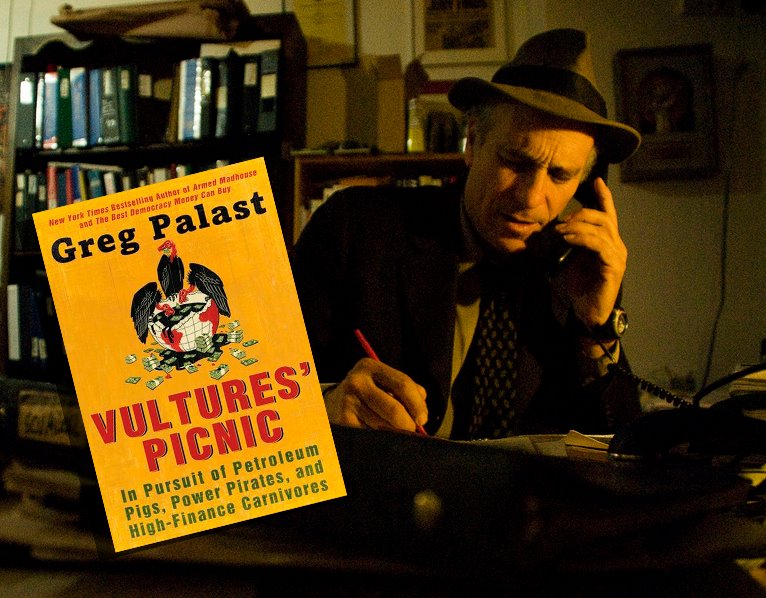Reprinted from us4.campaign-archive2.com
The answer, Nate, is "Crosscheck."
No question, Republicans trounced Democrats in the Midterm elections. But, if not for the boost of this voter-roll purge system used in 23 Republican-controlled states, the GOP could not have taken the US Senate.
It took the Palast investigations team six months to get our hands on the raw files, fighting against every official trick to keep them hidden.
Interstate Crosscheck is computer system that officials claim can identify anyone who commits the crime of voting twice in the same election in two different states. While the current list of seven million "suspects" did not yield a single conviction for double voting, Crosscheck did provide the grounds for removing the registrations of tens of thousands of voters in battleground states.
The purge proved decisive in North Carolina, Colorado, Kansas and elsewhere. Without Crosscheck, the GOP could not have taken control of the US Senate. [Read my original investigative report.]
Nate Silver might want to punch these numbers into his laptop:
- In North Carolina, Republican Thom Tillis upset incumbent Senator Kay Hagan by just 48,511 votes. North Carolina's Crosscheck purge list targeted a stunning 589,393 voters.
- In Colorado, Cory Gardner, the Republican, defeated Mark Udall by just 49,729 votes. Colorado's Crosscheck "potential double voter" list totals 300,842.
No, states do not purge every name on the lists. Typical is Virginia which proudly purged 64,581 "duplicates" from its voter rolls in 2013, equal to about 19% of its Crosscheck list. Other states refuse to provide numbers, but their scrub methods are the same, or even more aggressive, than Virginia's.
We can conservatively calculate that the purge of 19% of the Crosscheck lists accounted for at least three GOP Senate victories -- and thereby, control of the Senate.
If the Crosscheck lists truly identified fraudulent double voters, then we'd have to concede that the election results are legit. But the ugly truth is, the lists are nothing more than racially-loaded lists of common names.
Click to Enlarge
And that's why GOP Secretaries of State, a gaggle of Katherine Harrises, hid the lists until we cracked through the official wall of denial and concealment. These election chieftains refused our demands for the lists on the grounds that these millions of voters are all suspects in a criminal investigation and so must remain confidential.
Eventually (and legally), we were able to get our hands on 2.1 million of the 6.9 million names--and had them analyzed by the same list experts who advise eBay and American Express.
What we found is simply a giant list of common names--a lot of voters named Michael Jackson, David Lee and Juan Rodriguez. The racial smell of it was apparent and awful. As the US Census tells us, African-Americans, Asian-Americans and Hispanics are 67% more likely to share a common name as a white American. In other words, the lists heavily targeted "blue" Americans, Democratic leaning voters.
While state officials claimed that the criminal double voters were matched by social security number and other key identifiers, we discovered that, in fact, they only matched first and last name. Nearly two million of the pairs of names lacked middle name matches. Example: James Elmer Barnes Jr. who voted in Georgia is supposed to be the same person as James Cross Barnes III of Virginia.
Republican officials have gone to great lengths to cover Crosscheck's operations. Voters purged are not told they are accused of voting twice. The procedure, created by Kansas' Republican Secretary of State Kris Kobach, is to send a postcard to each "duplicate" voter requiring them to re-verify their registration. A large percentage are never delivered--Americans, especially renters and lower-income Americans, move often--or cards are tossed away confused for junk mail.
Brad Friedman, the investigative reporter with encyclopedic knowledge of elections shenanigans, was also bemused by Nate Silver's confusion over the missing Democratic four percent. He cites the Crosscheck purges we discovered and adds in all the other tried and true methods of bending the vote, from Photo ID restrictions to missing voter registrations and a deliberate shortage of paper ballots in minority precincts. In Georgia alone, 56,000 registration forms collected by a coalition of minority voting rights groups were simply not added to the voter rolls.
(Note: You can view every article as one long page if you sign up as an Advocate Member, or higher).







